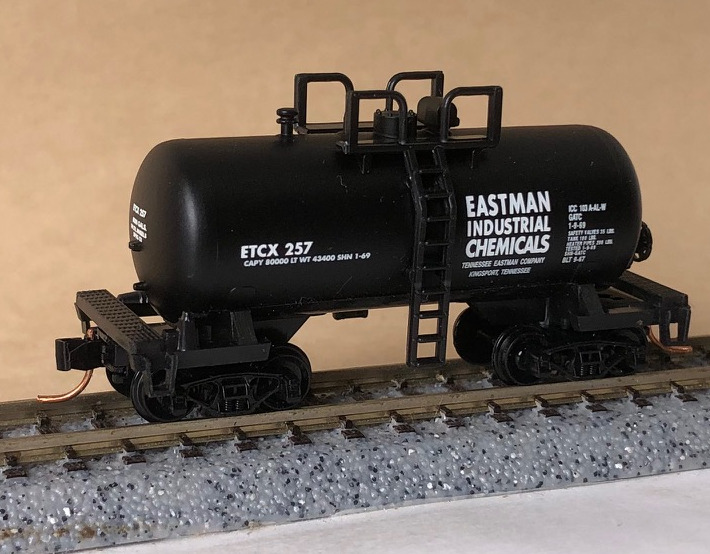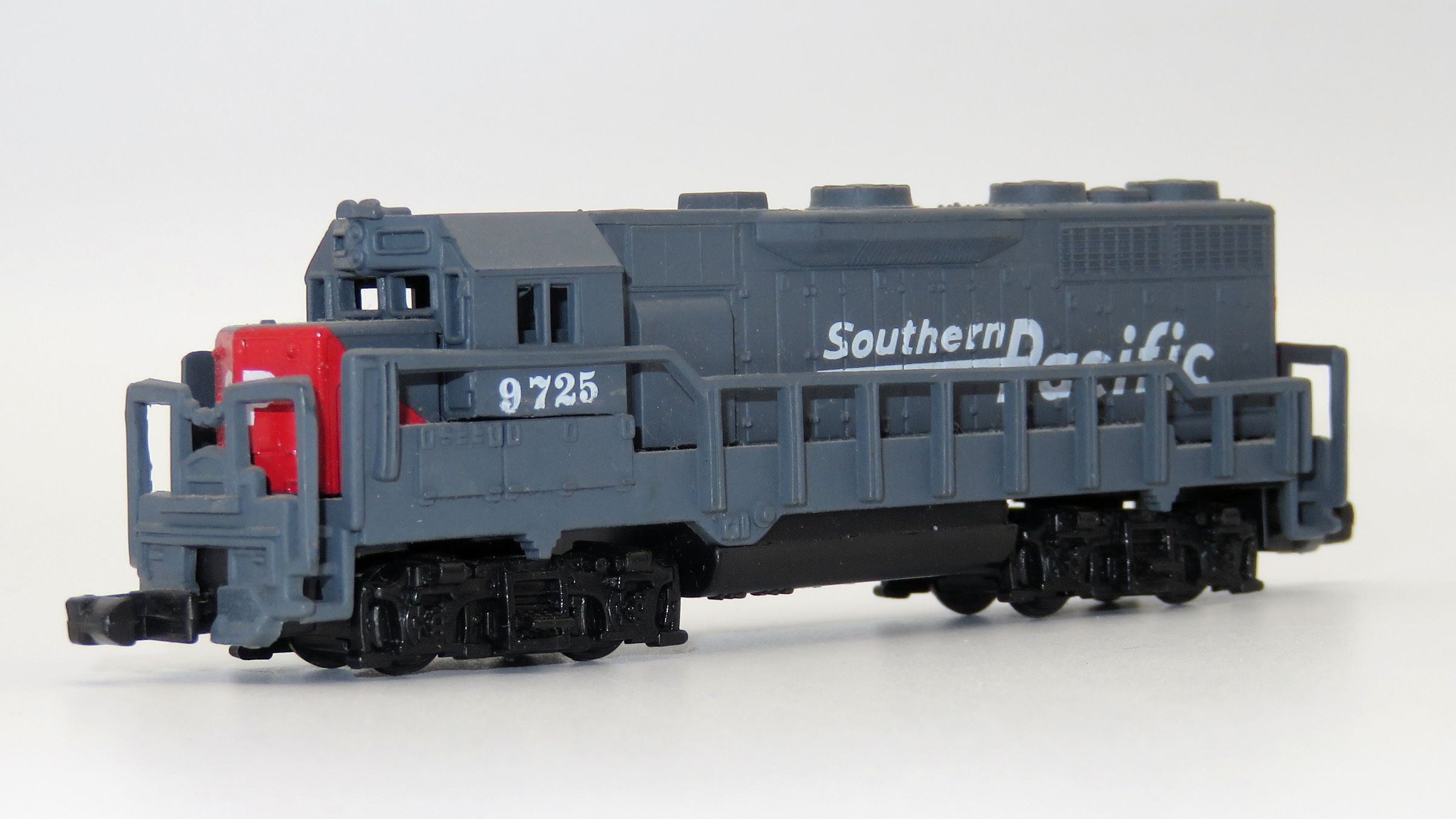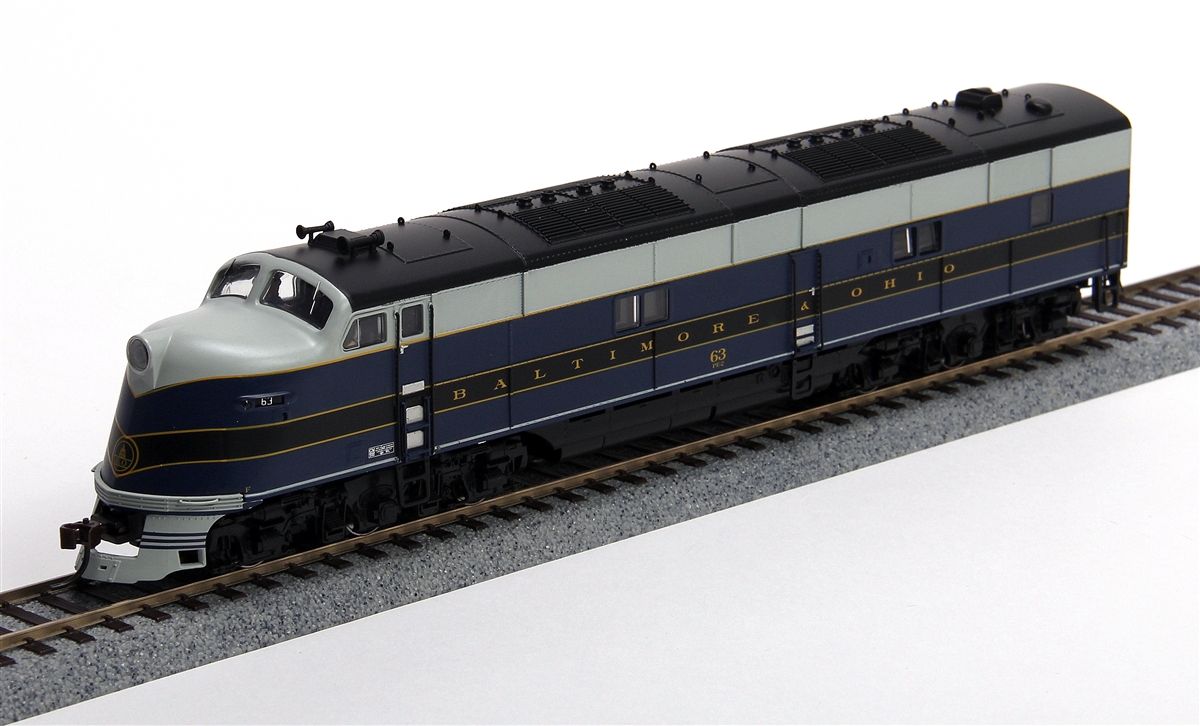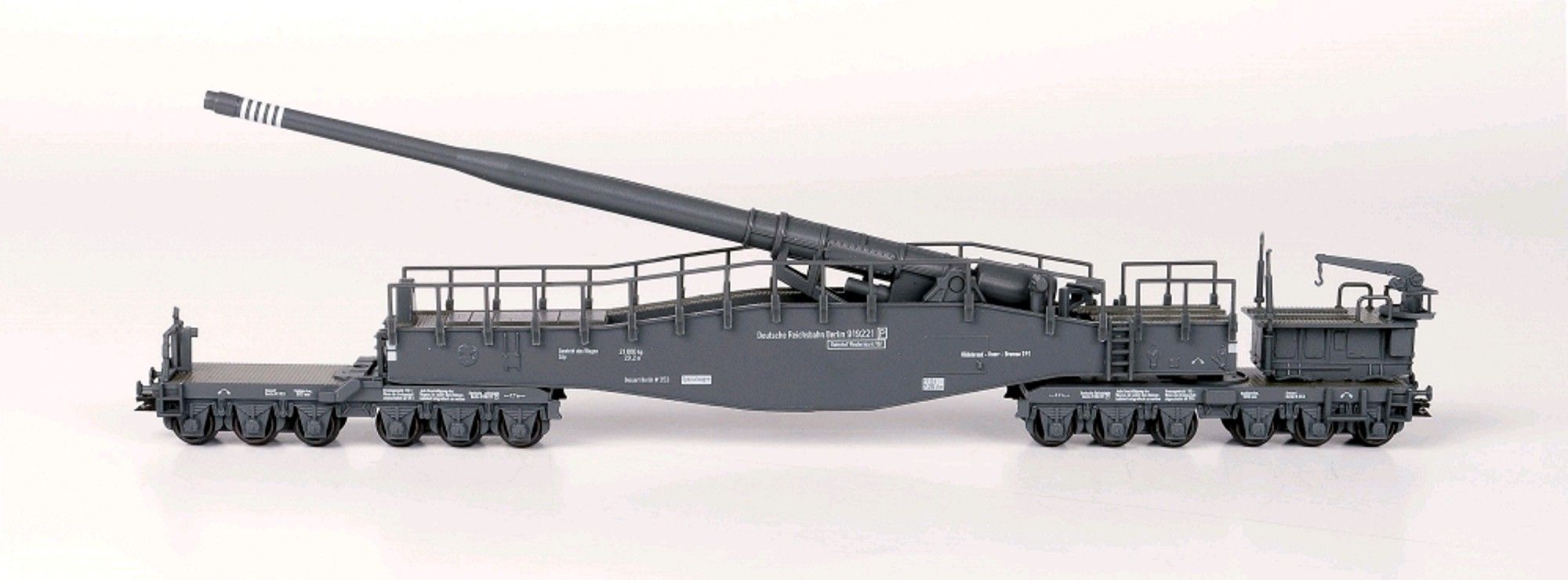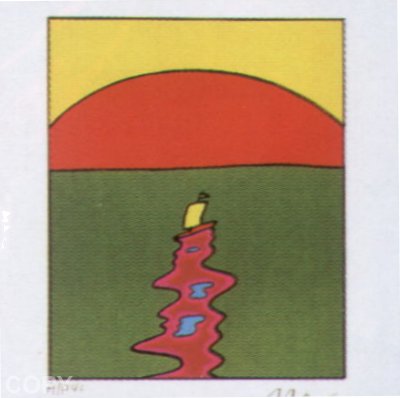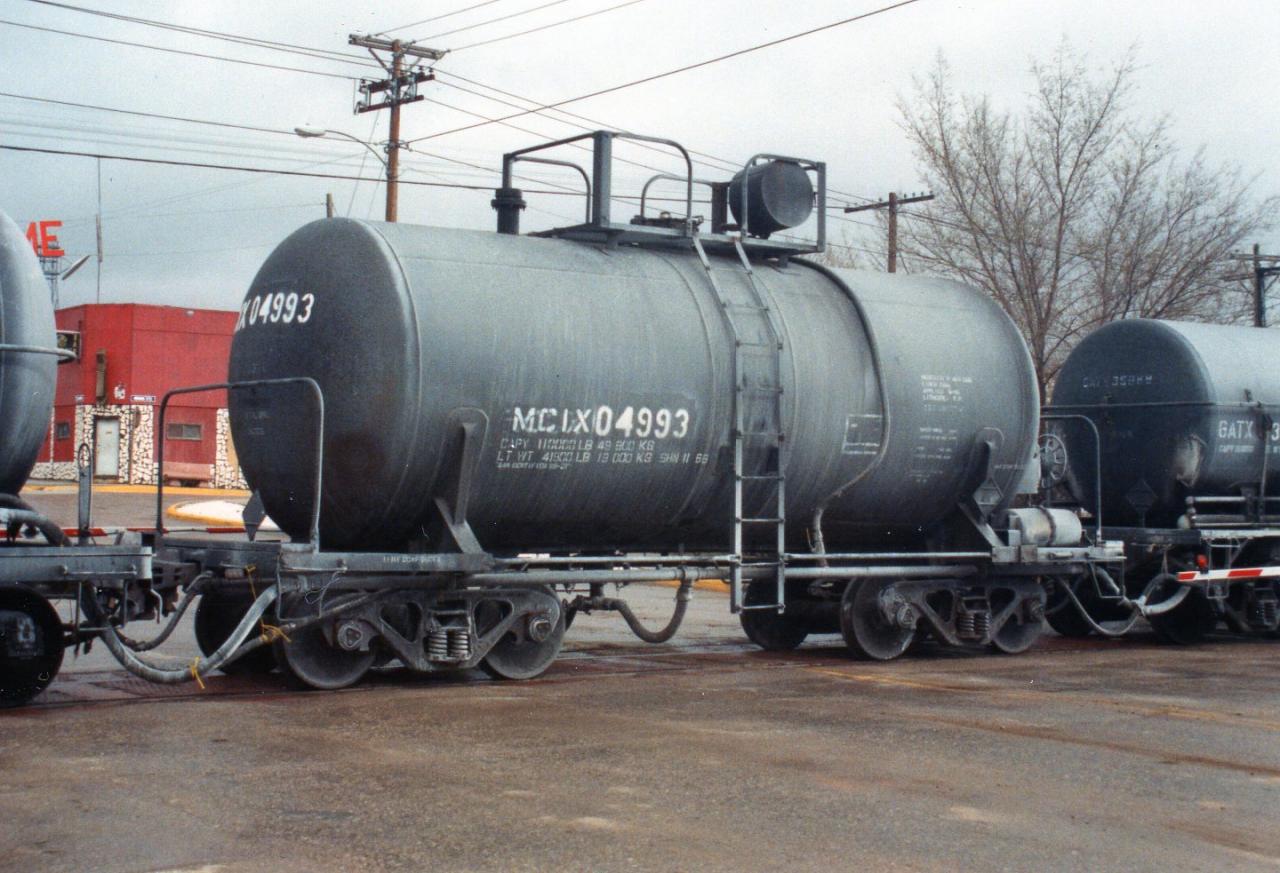Model Information: This body style is used to haul ingredients for making beer and chemicals like sulfuric acid. N-Scale modelers seem to love them because Atlas keeps on making them. They were originally announced in the 1969 catalog as 'Road Names to be Announced'. They were still in 'real soon now' state as of the 1972 catalog! It seems Atlas was having some trouble finding a manufacturer to produce the darn things. It does seem that they appeared on retailers' shelves on or around 1972 since the 1973 Sun-N-Sand Special Run car used this body style.
Regardless of the introduction date, Atlas has made at least 170 different versions of this car in at least 10 different releases. Originally produced with Rapido Couplers, more recent releases use Accumates. If a prototype exists, it would be 29 foot long and carry about 4,000 gallons of something. According to Atlas, that something might be chemicals, honey, lard or heating oil.
Regardless of the introduction date, Atlas has made at least 170 different versions of this car in at least 10 different releases. Originally produced with Rapido Couplers, more recent releases use Accumates. If a prototype exists, it would be 29 foot long and carry about 4,000 gallons of something. According to Atlas, that something might be chemicals, honey, lard or heating oil.
Prototype History: These cars transport higher value commodities which typically are shipped in smaller amounts. One example is corn syrup. Some carry petroleum refining catalysts, sulfuric acid and sodium hydroxide. The typically ride on roller bearing trucks with 33 inch wheels.
Road Name History: Eastman Chemical Company is an American Fortune 500 company, engaged in the global manufacture and sale of chemicals, fibers, and plastics. Founded in 1920 and based in Kingsport, Tennessee, the company now has more than 40 manufacturing sites worldwide and employs approximately 15,000 people.
Eastman Chemical was spun off from parent Eastman Kodak in 1994; in July 2012, Eastman acquired Solutia for $4.8 billion. Eastman had 2012 pro forma revenues of approximately $9.1 billion.
Read more on the the company website.
Eastman Chemical was spun off from parent Eastman Kodak in 1994; in July 2012, Eastman acquired Solutia for $4.8 billion. Eastman had 2012 pro forma revenues of approximately $9.1 billion.
Read more on the the company website.
Brand/Importer Information: In 1924 Stephan Schaffan, Sr. founded the Atlas Tool Company in Newark, New Jersey. In 1933 his son, Stephan Schaffan, Jr., came to work for his father at the age of sixteen. Steve Jr. built model airplanes as a hobby and frequented a local hobby shop. Being an enterprising young man, he would often ask the owner if there was anything he could do to earn some extra spending money. Tired of listening to his requests, the hobby-store owner threw some model railroad track parts his way and said, "Here, see if you can improve on this".
In those days, railroad modelers had to assemble and build everything from scratch. Steve Jr. created a "switch kit" which sold so well, that the entire family worked on them in the basement at night, while doing business as usual in the machine shop during the day.
Subsequently, Steve Jr. engineered the stapling of rail to fiber track, along with inventing the first practical rail joiner and pre-assembled turnouts and flexible track. All of these products, and more, helped to popularize model railroading and assisted in the creation of a mass-market hobby. The budding entrepreneur quickly outgrew the limitations of a basement and small garage operation. Realizing they could actually make a living selling track and related products, Steve and his father had the first factory built in Hillside, New Jersey at 413 Florence Avenue in 1947. On September 30, 1949, the Atlas Tool Company was officially incorporated as a New Jersey company.
In 1985, Steve was honored posthumously for his inventions by the Model Railroad Industry Association and was inducted into the Model Railroad Industry Hall of Fame in Baltimore, Maryland. In addition, Steve was nominated and entered into the National Model Railroad Association Pioneers of Model Railroading in 1995.
In the early 1990s, the Atlas Tool Company changed its name to Atlas Model Railroad Company, Inc.
In those days, railroad modelers had to assemble and build everything from scratch. Steve Jr. created a "switch kit" which sold so well, that the entire family worked on them in the basement at night, while doing business as usual in the machine shop during the day.
Subsequently, Steve Jr. engineered the stapling of rail to fiber track, along with inventing the first practical rail joiner and pre-assembled turnouts and flexible track. All of these products, and more, helped to popularize model railroading and assisted in the creation of a mass-market hobby. The budding entrepreneur quickly outgrew the limitations of a basement and small garage operation. Realizing they could actually make a living selling track and related products, Steve and his father had the first factory built in Hillside, New Jersey at 413 Florence Avenue in 1947. On September 30, 1949, the Atlas Tool Company was officially incorporated as a New Jersey company.
In 1985, Steve was honored posthumously for his inventions by the Model Railroad Industry Association and was inducted into the Model Railroad Industry Hall of Fame in Baltimore, Maryland. In addition, Steve was nominated and entered into the National Model Railroad Association Pioneers of Model Railroading in 1995.
In the early 1990s, the Atlas Tool Company changed its name to Atlas Model Railroad Company, Inc.
Item created by: gdm on 2016-10-05 13:03:13. Last edited by gdm on 2020-12-20 06:51:52
If you see errors or missing data in this entry, please feel free to log in and edit it. Anyone with a Gmail account can log in instantly.
If you see errors or missing data in this entry, please feel free to log in and edit it. Anyone with a Gmail account can log in instantly.


